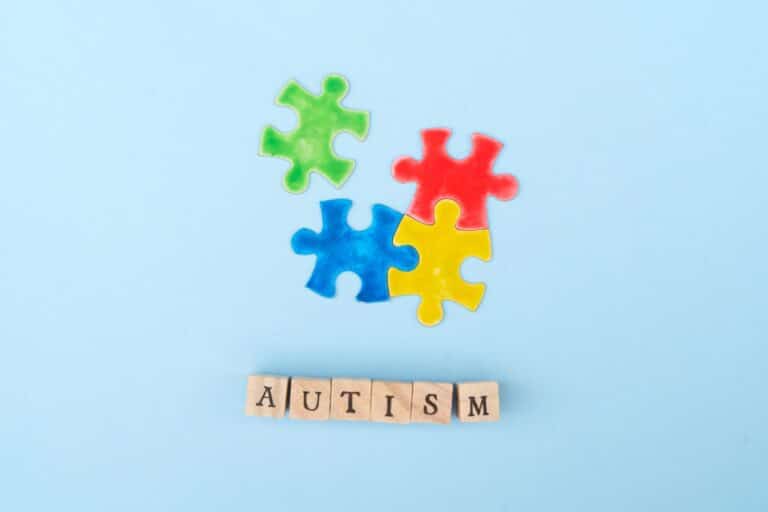National Developmental Disabilities Awareness Month, observed each March, provides a vital opportunity to increase understanding, promote inclusion, and highlight the unique mental health needs of individuals with developmental disabilities. At Southern California Sunrise Recovery Center, we recognize the important intersection between developmental disabilities and mental health, and we’re committed to providing specialized support that addresses these complex, interconnected conditions.
Understanding Developmental Disabilities and Mental Health
Developmental disabilities encompass a group of conditions that emerge during childhood development and typically last throughout a person’s lifetime. These include intellectual disabilities, autism spectrum disorders, cerebral palsy, Down syndrome, fetal alcohol spectrum disorders, and other conditions that affect cognitive functioning, physical abilities, or both.
According to the Centers for Disease Control and Prevention, approximately 1 in 6 children in the United States has a developmental disability. These individuals face unique challenges that can significantly impact their mental health and overall well-being. Research indicates that people with developmental disabilities experience mental health conditions at rates two to three times higher than the general population, yet often receive inadequate mental health support.
This intersection creates what mental health professionals call a “dual diagnosis” or “co-occurring conditions,” which requires specialized approaches to treatment. Common mental health conditions experienced by people with developmental disabilities include:
- Depression and mood disorders
- Anxiety disorders
- Trauma-related conditions
- Obsessive-compulsive behaviors
- Attention deficit hyperactivity disorder
- Sleep disorders
- Behavioral challenges related to emotional regulation
The relationship between developmental disabilities and mental health is bidirectional and complex. Factors that can contribute to mental health challenges in this population include:
- Communication barriers and frustration
- Social isolation or exclusion
- Bullying and discrimination
- Sensory processing differences
- Neurological differences affecting emotional regulation
- Side effects of medications
- Limited access to appropriate mental health care
Breaking the Barriers to Mental Health Care
Despite the high prevalence of mental health conditions among people with developmental disabilities, significant barriers to quality care persist. National Developmental Disabilities Awareness Month aims to address these challenges through education and advocacy.
Diagnostic Overshadowing
One of the most significant barriers is “diagnostic overshadowing,” where healthcare providers attribute mental health symptoms to the developmental disability rather than recognizing them as separate, treatable conditions. For example, a clinician might attribute a person’s depression symptoms to their autism, rather than diagnosing and treating the depression as a co-occurring condition.
Communication Challenges
Traditional talk therapy often relies heavily on verbal communication and introspection, which may not be accessible for individuals with certain developmental disabilities. At Southern California Sunrise Recovery Center, we utilize modified approaches like art therapy, sensory-based interventions, and adapted cognitive-behavioral techniques to accommodate different communication styles and needs.
Provider Training Gaps
Many mental health providers lack specialized training in working with developmental disabilities, leading to inadequate assessment and treatment. Our team includes professionals with expertise in both developmental disabilities and mental health, ensuring comprehensive, individualized care.
Systems Fragmentation
Historically, developmental disability services and mental health services have operated as separate systems with different funding streams and eligibility requirements. This fragmentation can make it difficult for individuals to access integrated care that addresses all their needs. Our treatment approach bridges this gap by providing coordinated services that address both developmental and mental health needs.
Effective Treatment Approaches
When addressing mental health in individuals with developmental disabilities, treatment must be adapted to meet their unique needs while preserving the evidence-based foundations of mental health care. Effective approaches include:
Adapted Therapeutic Modalities
- Modified Cognitive-Behavioral Therapy (CBT): Using visual supports, simplified language, and concrete examples to make CBT accessible
- Dialectical Behavior Therapy (DBT): Adapted to focus on concrete skills for emotional regulation and distress tolerance
- Sensory-Based Interventions: Addressing sensory sensitivities that may contribute to anxiety or behavioral challenges
- Behavioral Supports: Using positive behavioral supports to address challenging behaviors related to mental health conditions
Medication Management
Medication can be an important component of treatment for many individuals with co-occurring developmental disabilities and mental health conditions. However, medication management requires special considerations, including:
- Careful assessment of potential side effects
- Starting with lower doses and adjusting gradually
- Monitoring for unique medication responses
- Clear communication about medication effects using accessible formats
Family-Centered Care
Families and caregivers play a crucial role in supporting mental health for people with developmental disabilities. Our approach includes:
- Family education about the intersection of developmental disabilities and mental health
- Caregiver support to prevent burnout and secondary trauma
- Skills training for supporting their loved one’s emotional needs
- Involvement in treatment planning and implementation
Trauma-Informed Care
Many individuals with developmental disabilities experience traumatic events, often at higher rates than the general population. Our trauma-informed approach recognizes these experiences and incorporates trauma-specific interventions adapted for cognitive and communication differences.
Supporting Mental Wellness in Developmental Disabilities
Creating environments that support mental wellness for people with developmental disabilities extends beyond formal treatment settings. Consider these strategies for promoting mental health:
Inclusive Community Participation
- Accessible community activities and recreation
- Peer support and social opportunities
- Employment supports that accommodate diverse needs
- Inclusive education with appropriate accommodations
Self-Advocacy Skills
- Supporting individuals to express their needs and preferences
- Teaching self-determination skills appropriate to cognitive abilities
- Providing accessible information about mental health and self-care
- Creating opportunities for meaningful choice and control
Sensory-Friendly Environments
- Modifying physical environments to reduce sensory overload
- Creating predictable routines and transitions
- Offering sensory breaks and calming spaces
- Providing sensory tools and supports as needed
Preventive Mental Health Strategies
- Regular mental health check-ins using accessible assessment tools
- Teaching emotional vocabulary appropriate to cognitive level
- Proactive stress management techniques
- Identifying early warning signs of mental health concerns
Resources and Awareness Activities
National Developmental Disabilities Awareness Month features numerous activities designed to increase visibility and understanding:
- Educational workshops on the intersection of developmental disabilities and mental health
- Inclusive community events celebrating diversity and abilities
- Workplace inclusion initiatives and employer education
- Self-advocacy leadership development programs
- Legislative advocacy for improved services and supports
If you or someone you know is supporting an individual with developmental disabilities and mental health concerns, these resources can provide valuable information:
- National Association for the Dually Diagnosed (NADD)
- Autism Society of America
- National Down Syndrome Society
- The Arc
- Center for START Services
Help is Available
The intersection of developmental disabilities and mental health presents unique challenges, but with appropriate supports and services, individuals can experience significant improvements in their quality of life and overall well-being. National Developmental Disabilities Awareness Month reminds us that everyone deserves access to mental health care that respects their unique needs and abilities.
Take the First Step Toward Comprehensive Care Today
At Southern California Sunrise Recovery Center, our compassionate team understands the complex relationship between developmental disabilities and mental health. We offer specialized treatment programs designed to address both sets of needs through accessible, person-centered approaches.
Don’t navigate these challenges alone. Contact us today at (949) 284-7325 to speak with our admissions team about how our comprehensive mental health treatment programs can be adapted to support individuals with developmental disabilities. We accept most major insurance plans and can verify your benefits quickly.
Contact Southern California Sunrise Recovery Center Today
References
American Association on Intellectual and Developmental Disabilities. (2023). Mental health and developmental disabilities. https://www.aaidd.org/education/mental-health-and-developmental-disabilities
Centers for Disease Control and Prevention. (2024). Developmental disabilities. https://www.cdc.gov/ncbddd/developmentaldisabilities/index.html
National Association for the Dually Diagnosed. (2024). Information on dual diagnosis. http://thenadd.org/resources/information-on-dual-diagnosis/
National Institute of Mental Health. (2023). Mental health and developmental disabilities. https://www.nimh.nih.gov/health/topics/mental-health-and-developmental-disabilities
Southern California Sunrise Recovery Center. (2024). Behavioral therapy. https://socalsunrise.com/programs/behavioral-therapy/
Southern California Sunrise Recovery Center. (2024). Trauma disorders. https://socalsunrise.com/treatments/trauma-disorders/
The Arc. (2024). Mental health and developmental disabilities. https://thearc.org/our-initiatives/health/mental-health/






